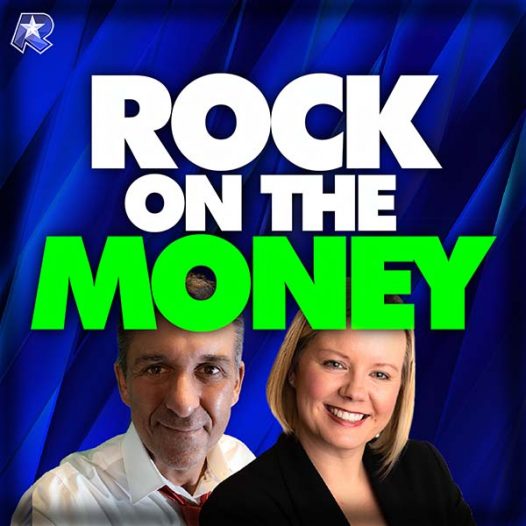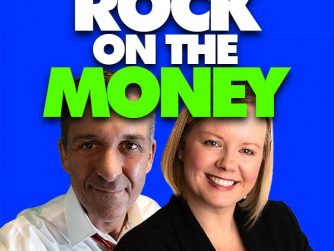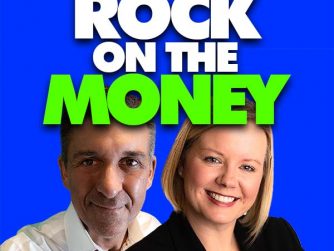- Top 10 Don’ts from Dave Ramsey;
- Retooling your budget during COVID-19
- How to defer auto loan payments;
- My company is stopping the 401K company match;
TOPIC: 10 Major Money Don’ts from Dave Ramsey
- Don’t try to tackle your biggest debts first
- Snowball instead – small victories lead to big progress
- Don’t buy with a credit card when you can buy with cash
- Leverage the envelope system
- Don’t buy new
- Don’t steal from your needs to pay for your wants
- If your car has 4 wheels and runs, it’s good enough
- Don’t spend when you can invest
- In order to make money in your 401k, you have to PUT money in your 401k.
- Don’t miss out on this sale!
- Don’t go to a fancy college
- The biggest lie we’ve ever believed: where you went to school has some correlation with your future success. It has almost zero.
- Don’t splurge once you graduate
- “I tell young people who call our radio show that you’re already used to living like a broke college kid, so keep living like one until you start making grown-up money,” Ramsey told CNBC in 2018
- You don’t have to resort to eating instant noodles and drinking instant coffee; it’s more about the mentality of making every penny count.
- Don’t try to justify frivolous purchases
- “But I work hard all day. I deserve it. Oh, call the wahhmbulance — we all work,” Ramsey said on his radio show
- Overspending is what’s keeping Americans in debt, Ramsey says, especially the attitude that you deserve what you want. It’s nickel-and-diming your future away.
- “Debt is not the problem, it’s the symptom. Debt is the result of disorganized, immature, buying things I don’t need and stuff for people I don’t like,” he told ABC News in 2018.
- Don’t give your kids an allowance
- Parents are setting their kids up for failure by giving them an “allowance.”
- “I just don’t like the word. Allowance kind of sounds like, ‘You’re not good enough, so I have to do something for you.’ It kind of sounds like welfare. Instead, we called it ‘commission.’ You got paid for doing chores. Work? Get paid. Don’t work? Don’t get paid,” he told CNN in 2014.
- Work should be age-appropriate
- Don’t try to get rich too quickly
- “Ninety percent of the [millionaires] I have met did it gradually,” Ramsey said on his radio show in 2017. “I’m not against getting money quickly … but there are all kinds of problems that go with it when it comes quickly…. How often have we seen the young athlete get money and it destroys their life?”
- Don’t buy an engagement ring from a jewelry store
- “Diamonds are like furniture. They’ve got a huge market, so where you buy it can be very, very important. If you can go to a diamond broker or someone who knows a little bit about diamonds, even a high-end pawn shop, you can get [rings] for a quarter on the dollar. And really good stones.”
Retooling your budget during Covid 19
- Rebalance your budget
- A cut in pay should match a cut in spending somewhere
- Include any unemployment income in your income column for now
- Supplement any shortfall with side gigs or other income generating ideas first, dip into emergency fund last
- Put your bills on hold, if you can
- “If you can’t pay your bills, or could really use some short-term relief, call anyone you owe money to and ask them what help is available,” Orman says, in her “Women & Money” podcast.
- As the coronavirus financial crisis worsens, homeowners are getting a break from mortgage payments, some states and communities are protecting renters from being evicted, and Americans with student loans can stop payments for two months, interest-free.
- Do you owe taxes? Deadline to pay has been pushed to July
- The federal government has given states the authority to expand their unemployment benefits programs and offer new options in response to COVID-19. For the most updated information and to easily find your state’s unemployment benefits program, visit CareerOneStop
- Take care of your 4 walls
- Housing
- Start with what’s likely your biggest expense, which is housing. If you’re a homeowner, there may be a silver lining amid the coronavirus crisis, in that the federal stimulus package includes relief for those with federally backed mortgage loans. If you have an outstanding mortgage and you’re concerned about falling behind on payments, don’t hesitate to reach out to your lender. They can walk you through what your options are, if any, for reducing or suspending your mortgage payments temporarily.
- Something else to consider: refinancing your home loan. With mortgage loan rates at or nearing historic lows, you may have an opportunity to refinance your mortgage at a lower rate. If that results in a lower payment, that could save you money on housing costs. Keep in mind that refinancing may require you to pay closing costs, unless you’re looking into a no closing cost refinance.
- And think carefully about tapping into your home’s equity. Low rates can make a home equity loan or home equity line of credit (HELOC) an attractive option, but if the slowdown in economic activity spurred by the coronavirus leads the economy into a recession, your home’s value could take a dip. In that scenario, you might find yourself upside down in the home.
- Food
- If you are unable to purchase food and basic essential needs for your household, you may be eligible for the Supplemental Nutrition Assistance Program (SNAP). To locate your local office, visit the state directory (https://www.fns.usda.gov/snap/state-directory), or contact the SNAP hotline at 1-800-221-5689.
- If you don’t qualify for SNAP, there are still resources available for help. Locate a local food bank or pantry by visiting Feeding America or FoodPantries.org
- Housing
- Don’t panic-sell your stocks/mutual funds
- Patience will pay off
- Will stocks keep going down? Maybe, but they are also likely to go up
- Since World War II, we have had 12 bear markets. The average loss was around 35%, and though stocks fell for an average of a bit more than a year, they typically had made back their losses in another two years and then rallied to new highs.
- Do keep investing more money, if you can afford it
- Don’t keep too little in your emergency fund
- Most experts say you should have enough saved — maybe in a high-yield savings account — to cover three to six months’ worth of expenses. Suze Orman says the coronavirus crash calls for a new standard: a three-year emergency fund.
- Don’t confuse the word “want” with “need”
- This is the time to eliminate or reduce nice-to-haves (dining out, entertainment, extracurriculars, memberships that can be cancelled or put on hold)
- Are there services you ordinarily pay someone else to do? Time to cut your own grass, clean your own bathrooms, etc.
- Don’t assume the job market will snap back to normal
- Some of your jobs may not be coming back; we may be looking at a total revamping of how businesses work after this
- Revamp your resume, see if you can pick up side gigs or freelance work that may lead to something more down the road
- Don’t miss out on your chance to convert your IRA
- “Many of you have been wanting to convert from a traditional IRA to a Roth IRA,” Orman says on her podcast. “If that is the case, when the markets are down significantly like this, this is the time.”
- “When the market is down, and stocks have gone down 50% so maybe, rather than having $20,000, you have $10,000 now,” Orman explains. “So, when you convert, you would only owe taxes on $10,000.”
What do you think?
Website: https://rockonthemoney.com/
Subscribe to the podcast: https://linktr.ee/rocklandusa
Facebook Group: https://www.facebook.com/groups/your401k/
Do you agree? Let us know and we’ll play or read your comments on the show. Call 989-888-ROCK (7625) and record your thoughts or just email us to podcast@rocklandusa.com



